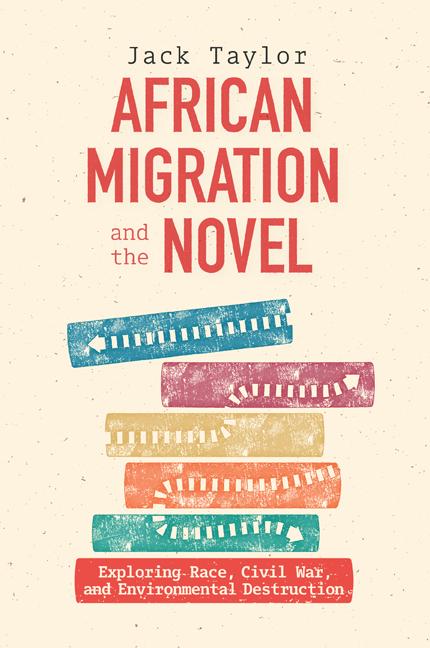Book contents
- Frontmatter
- Contents
- Acknowledgments
- Introduction: The Migratory Imagination
- 1 Migration, Sexual Exploitation, and the Form of the Afterlife of Slavery: Chika Unigwe’s On Black Sisters Street and Chris Abani’s Becoming Abigail
- 2 Refugee Livelihood, Racial Disorientation, and Mourning and Melancholy: Dinaw Mengestu’s The Beautiful Things That Heaven Bears and How to Read the Air
- 3 Hospitality, Forgiveness, and the Afterlife of Colonialism in the Paris Suburbs: Wilfried N’Sondè’s The Heart of the Leopard Children and The Silence of the Spirits
- 4 Migration and the Rwandan Genocide: Boubacar Boris Diop’s Murambi: The Book of Bones and Gilbert Gatore’s The Past Ahead
- 5 Environmental Devastation and Accumulation by Dispossession: Ishmael Beah’s Radiance of Tomorrow and In Koli Jean Bofane’s Congo INC.
- Coda
- Works Cited
- Index
2 - Refugee Livelihood, Racial Disorientation, and Mourning and Melancholy: Dinaw Mengestu’s The Beautiful Things That Heaven Bears and How to Read the Air
Published online by Cambridge University Press: 10 May 2024
- Frontmatter
- Contents
- Acknowledgments
- Introduction: The Migratory Imagination
- 1 Migration, Sexual Exploitation, and the Form of the Afterlife of Slavery: Chika Unigwe’s On Black Sisters Street and Chris Abani’s Becoming Abigail
- 2 Refugee Livelihood, Racial Disorientation, and Mourning and Melancholy: Dinaw Mengestu’s The Beautiful Things That Heaven Bears and How to Read the Air
- 3 Hospitality, Forgiveness, and the Afterlife of Colonialism in the Paris Suburbs: Wilfried N’Sondè’s The Heart of the Leopard Children and The Silence of the Spirits
- 4 Migration and the Rwandan Genocide: Boubacar Boris Diop’s Murambi: The Book of Bones and Gilbert Gatore’s The Past Ahead
- 5 Environmental Devastation and Accumulation by Dispossession: Ishmael Beah’s Radiance of Tomorrow and In Koli Jean Bofane’s Congo INC.
- Coda
- Works Cited
- Index
Summary
Dinaw Mengestu's The Beautiful Things That Heaven Bears and How to Read the Air
As the child of immigrants, you inherit the sort of loss of your parents. You don't necessarily remember it but you know that at some point in time there was a place, a country, a culture that was taken away. And now as a novelist you get a chance to try to figure out how it would have felt to lose those places yourself.
—Dinaw Mengestu, “Understanding the Puzzles of Identity”What I am more interested in thinking about is how we live and bear that loss, and melancholy for me isn't a bad thing … But I also think melancholy becomes our access point to different forms of joy and more complicated forms of joy.
—Dinaw Mengestu, “Dinaw Mengestu on Melancholy, Joy, and His Big Book Read”The first aim of the refugee is to survive, and having done that, that initial goal is replaced by the general ambitions of life.
—Dinaw Mengestu, The Beautiful Things That Heaven BearsIn a 2018 speech at the University of Central Florida, Dinaw Mengestu states it was the “absence of stories” and “absence of the lives of family members” that motivated him to write The Beautiful Things That Heaven Bears (Cole “An Interview”). In a separate interview at the same venue, Mengestu says his debut novel is a composite of both fact and fiction where he took factual details from his family and used them as the basis to craft his fiction (Cole “An Interview”). In response to a question concerning what his “novel has to say to all Americans, regardless of ethnic and racial background, about national identity,” Dinaw responded, “I don't know if novels are supposed to say anything. I think they exist to complicate and expand upon our understanding of the world and it is up to the reader to create their personal meaning out of the narrative” (Cole “An Interview”). Mengestu is surely being modest in his assessment that novels have the ability “to complicate and expand” the readers’ engagement with the world. Mengestu delivers a hermeneutic at the intersection of the reader, world, and text and routes it through the epistemological categories of understanding and personal meaning. Readers expand their understanding of the world with the aid of the novel.
- Type
- Chapter
- Information
- African Migration and the NovelExploring Race, Civil War, and Environmental Destruction, pp. 60 - 94Publisher: Boydell & BrewerPrint publication year: 2024



